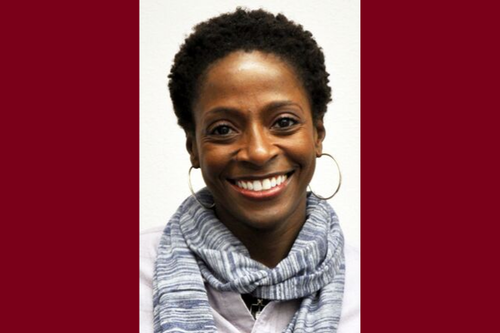
September 25 is Women’s Health & Fitness Day, the nation’s largest annual health promotion event for women of all ages.
Daheia Barr-Anderson, Ph.D., whose research focuses on physical activity, sedentary behaviors and obesity prevention, answers five questions about why exercise is important and how people can make it a part of their routine, regardless of obstacles.
Q. Why is exercise important?
Prof. Barr-Anderson: The benefits of exercise, or rather physical activity, are numerous. From psychological to physical — as well as mental, emotional and social positive effects — moving your body on a regular basis is essential for overall health. Exercise is important for everyone regardless of age, gender, race/ethnicity, socioeconomic status and so forth. However, with the recognition of National Women’s Health and Fitness Day, this is a perfect time to support women to prioritize their health and the moving of their bodies.
Q. Can you give some tips on how to participate in exercise if you're just beginning?
Prof. Barr-Anderson: Start slow. The goal is to make regular movement a lifetime habit. You want to make small, but consistent changes, so exercise becomes a way of life and a part of how you see yourself.
Choose an activity you like, or something you’ve been interested in or curious about. People are more likely to engage in an activity they enjoy or look forward to participating in. Even if you don’t see yourself as an “exerciser,” if you really think about it, there are some types of physical activities that pique your interest. Maybe you like being outside and in nature. Take a walk outdoors and instead of focusing on the steps you are taking, focus on your surroundings. You will be moving in a space that you enjoy with the emphasis on the space and not the movement. Two birds with one stone!
Decrease barriers by engaging in an activity that presents very few barriers (i.e., special equipment, an inconvenient location). The more barriers, the less likely you will stick with an exercise routine.
Social support is key. Find a friend, support group or others to connect with and keep you accountable.
Q. What if the people in my life aren’t supportive of a regular exercise routine or don’t exercise regularly?
Prof. Barr-Anderson: People often aren’t supportive because they don’t like to “exercise” or don’t like what “exercise” represents (i.e., working out hard, lots of sweating, running, doing movement that a person who is not currently moving will find intimidating). Exercise is really just moving your body, so try getting your friends and family engaged in activities that they find fun, not laborious or boring as exercise is often perceived to be, and promotes engagement between people.
Q. How does your upbringing affect your view on exercise?
Prof. Barr-Anderson: Role modeling is a key factor in determining activity behavior in youth. Children who have parents who are active, are more likely to be active themselves.
Q. What is your current research in exercise focused on?
Prof. Barr-Anderson: Here at the University of Minnesota, I am pursuing two lines of research: family-based interventions to promote more physically active lifestyles and yoga interventions for more sedentary populations.
Family-based interventions entail many of the principles outlined above — engaging family members in fun movement that promotes familial support and participation in hopes of making more substantial and long-lasting changes.
The yoga interventions promote the use of the less-traditional activity to get sedentary individuals to be more physically active. Creating a space where movement can be very gentle coupled with deep breathing and mindfulness can reap tremendous mental and emotional benefits to engaging in more vigorous, fast-paced movement that can lead to more physiological and physical benefits.
Daheia Barr-Anderson, Ph.D., is an associate professor in the School of Kinesiology in the College of Education and Human Development. She is particularly interested in home- and community-based, environmental interventions that incorporate both physical activity and nutrition to achieve healthy outcomes and to decrease racial/ethnic health inequalities.
About “Talking...with U of M”
“Talking...with U of M” is a resource whereby University of Minnesota faculty answer questions on current and other topics of general interest. Feel free to republish this content. If you would like to schedule an interview with the faculty member or have topics you’d like the University of Minnesota to explore for future “Talking...with U of M,” please contact University Public Relations at [email protected].
- Categories:
- Health




